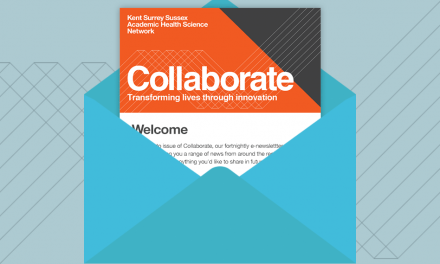Foundry Primary Care Network’s model of care shows improved patient outcomes and potential cost savings.
Foundry Healthcare Lewes Primary Care Network (Foundry), Kent Surrey Sussex Academic Health Science Network (KSS AHSN) and Unity Insights have published the findings of a five-year primary care transformation project at the Foundry.
The evaluation and thought-leadership reports demonstrate how this model of primary care can lead to improved patient outcomes and satisfaction, a more sustainable workforce model, a more positive working environment for employees and potential cost-savings.
Notably, the evaluation, commissioned by KSS AHSN and conducted by Unity Insights, found that every £1.00 of PCN funding invested in the interventions adopted by the Foundry is estimated to offer a return of £1.50 to the healthcare system. By adopting the Foundry’s model, estimated savings can also be seen in the reduction of 12,480 non-elective bed days, 751 fewer A&E visits, 170 fewer ambulance conveyances and 720 fewer locum GP sessions over the study period.
The Foundry implemented a series of transformation measures following a merger of three practices in 2019. The programme is based on a population health management approach. This involved segmenting the registered patient population and re-engineering a multi-disciplinary and integrated team to create a needs-led model of primary care.

“The whole Foundry Team take great pride in how our hard work has helped improve care for the patients of Lewes. It’s fantastic to see evidence that working collaboratively in Primary Care can achieve benefits for patients, staff and the wider health economy. A new culture of continuous improvement at the Foundry means this is just the beginning.”
The evaluation and thought-leadership piece are published just days after the Government announced its delivery plan for recovering access to primary care. This ambitious plan highlights four areas of change including empowering patients to manage their own health, implementing modern general practice access, building capacity to deliver more appointments, and cutting bureaucracy and reducing workload. It builds on the vision for a more integrated, streamlined, and personalised primary care service as set out in the Fuller Stocktake report.
“It’s brilliant and necessary to see practical examples of how primary care can be transformed from the ground-up, especially in light of the Government’s plans to recover access to primary care. The evaluation demonstrates the Foundry’s model has the potential to save money and improve outcomes, while also placing patient access high on its agenda. The journey to reform primary care in the UK has only just begun, but I hope transformation projects like this provide confidence to the whole system that change is both achievable and beneficial.”
The Foundry staff reported the interventions had positively impacted the provision of care, noting the impact on patients (through improved triaging) and on staff (upskilling and broadening of responsibilities). Similarly, patients at the Foundry reported a higher satisfaction regarding several aspects of care compared to Sussex ICS patients, such as confidence in the healthcare team and the care received. However, patient insights highlighted some difficulties accessing care, which is an area the Foundry continues to focus on.
The thought leadership piece explores whether the Foundry model of care constitutes a local reply to the ambitions of the Fuller Stocktake report. It sets out how other PCNs can adopt the Foundry’s model by highlighting key conditions and principles for adoption, as well as including a checklist for other PCNs to follow. While the model has the potential to benefit many PCNs, tailoring of the interventions and bottom-up leadership will be pivotal for its successful adoption.





